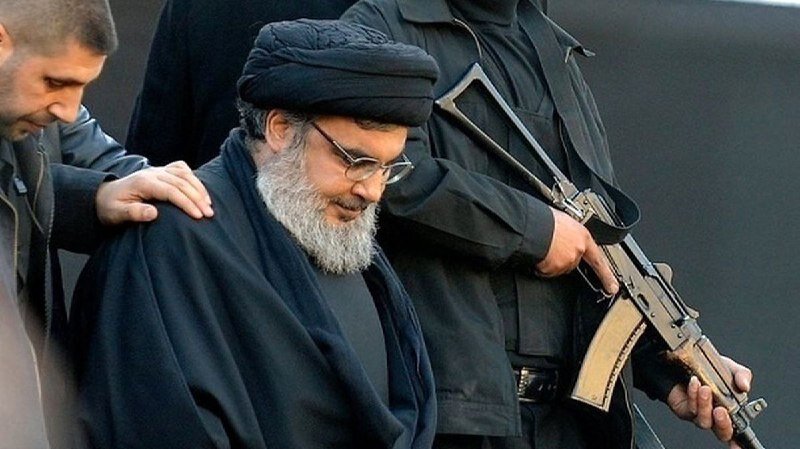Nasrallah: A living martyr

TEHRAN – The funeral ceremony for Hezbollah Secretary-General Seyyed Hassan Nasrallah has been officially announced.
Sheikh Naim Qassem, the current leader of the Lebanese resistance, confirmed the commemoration will take place on February 23.
Sheikh Qassem noted that foreign dignitaries will attend the funeral. The ceremony is expected to be massive, with many important figures present.
People will gather to pay their respects to a man adored in Lebanon, West Asia, and beyond.
Hezbollah Secretary-General Nasrallah was widely seen as a champion of resistance.
He was admired not only for his strong leadership skills and influence but also for his unwavering, decades-long mission to end Israeli occupation.
To many, he was a symbol of defiance and determination, shaping the course of Lebanon’s struggle to end the Israeli occupation.
The Israeli military withdrew from southern Lebanon on May 24, 2000, ending nearly 18 years of occupation.
This was a historic moment for Lebanon, marking the first time the Israeli regime pulled out of Arab land without direct negotiations or a peace deal. The withdrawal was seen as a major victory for the Lebanese resistance.
Hezbollah was the driving force behind the Israeli retreat. Through years of relentless guerilla warfare and strategic attacks, the group made the occupation too costly for Israel to sustain.
Under Nasrallah’s leadership, Hezbollah’s resistance efforts gained widespread support, ultimately forcing the Israeli military to withdraw and reshaping the balance of power in the region.
Nasrallah’s son, Hadi Nasrallah, was martyred by Israeli Occupation Forces (IOF) on September 12, 1997.
He died in a battle with the IOF in southern Lebanon while fighting on the frontlines along with co-Hezbollah guerrilla forces. His death became a symbol of sacrifice for the Lebanese resistance.
After the Israeli withdrawal in 2000, Nasrallah’s speeches grew bolder and more defiant.
He frequently warned that Hezbollah remained ready for any future conflict and that Israel’s defeat in Lebanon was only the beginning, something which infuriated politicians in Tel Aviv and Washington.
Between 2000 and 2006, he delivered fiery addresses, threatening to strike deep into Israeli territory if Lebanon was provoked. His speeches reinforced his image as a powerful and fearless leader.
The 2006 Israeli war on Lebanon saw the regime wage a massive military offensive.
For 33 days, the Israeli military carried out relentless airstrikes and a ground invasion, while Hezbollah responded with rocket attacks on Israeli territory and ground operations that proved too costly for Israel.
Despite Israel’s military superiority, Hezbollah’s strong resistance and guerilla tactics prevented an Israeli victory.
When the war ended with a UN-brokered ceasefire, Hezbollah emerged politically and militarily stronger. An Israeli-formed committee acknowledged a defeat for the occupying regime.
“Nasrallah wins the war”, the Economist magazine declared in 2006.
The Lebanese resistance, under Nasrallah’s leadership, stood its ground and proved that “Israel was weaker than the spider’s web”.
On October 8, 2023, Hezbollah opened a “support front” in solidarity with Gaza following the October 7 operation by Hamas.
This marked a historic moment, as it was the first time in history that the resistance in both Gaza and Lebanon united to confront Israeli occupation and aggression.
This unprecedented collaboration highlighted the growing strength and unity of resistance efforts in the region.
It also marked the first time that hundreds of thousands of Israeli settlers were forcibly displaced from northern Israel amid Hezbollah fire.
The Hezbollah Secretary-General vowed that the settlers would not return to the north until a ceasefire was reached in Gaza.
Nasrallah was martyred on September 27 in an intense and unparalleled series of airstrikes by Israeli F-35 jets, which targeted the southern Haret Hreik neighborhood of Beirut. The strikes were the most aggressive the regime had launched on Lebanon.
The martyr Secretary-General left behind a powerful legacy of resistance. Under his leadership, Hezbollah became a formidable military and political force.
Even after Nasrallah’s martyrdom, Hezbollah continued its military operations for approximately two months, launching unprecedented ground, drone, and missile attacks deep into Israeli territory.
It proved that Nasrallah's influence and legacy would shape Lebanon’s resistance for years to come.
He will be remembered as a leader who kept his word: until the Lebanese army was strong enough to defend Lebanon’s territorial integrity, Hezbollah would never surrender its weapons.
No matter the cost, he vowed to stand firm against the Israeli enemy, always prioritizing the safety of the Lebanese as well as the Palestinians and ultimately sacrificing his life for Palestine.
Leave a Comment